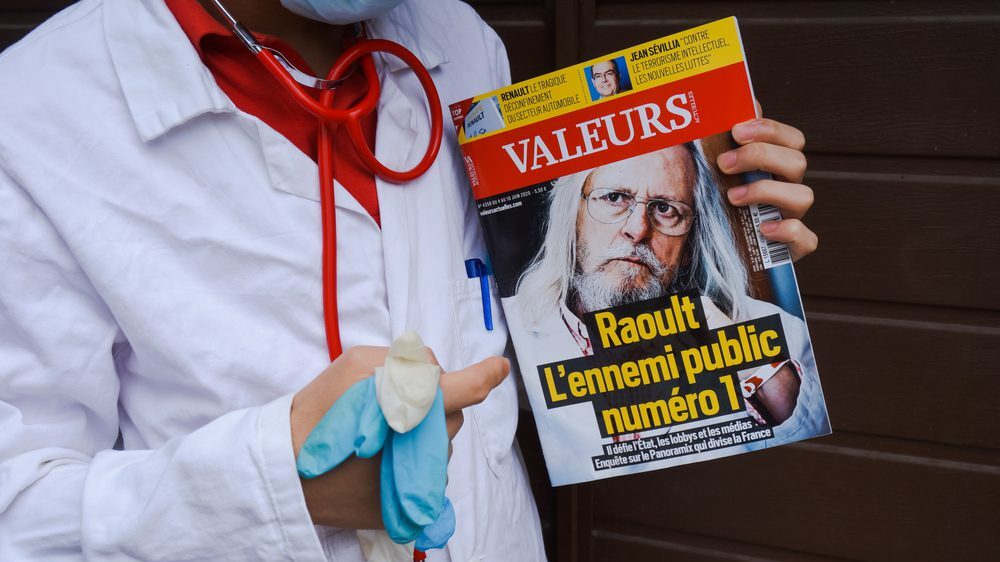
The page of the pandemic seems to have been turned, but on the legal front, the battle is raging in France with the prosecution of the highly publicised Professor Didier Raoult, who distinguished himself at the height of the pandemic by advocating a hydroxychloroquine-based, anti-COVID treatment in his hospital in Marseilles. The authorities are now accusing him of using an unauthorised experimental clinical treatment, which the researcher vigorously refutes.
Professor Didier Raoult, a specialist in infectious diseases and former director of the Méditerranée Infection University Hospital Institute in Marseilles, distinguished himself early on in the COVID-19 pandemic by his willingly critical, alternative stance on the French government’s health choices. His strong personality and regular presence in the media gave him a high profile, but also great popularity in so-called ‘anti-vax’ circles—even though he was not fundamentally hostile to the principle of a vaccine (he considers vaccines useful for reducing mortality), and made a number of contradictory statements on the subject.
In September 2022, having already retired from his medical practice, Professor Raoult was dismissed as Director of the Marseille IHU. But the controversy was reignited seven months later with the publication on April 4th—not yet approved by a scientific journal—of a study of 30,423 COVID-19 patients treated at Professor Raoult’s institute between March 2, 2020 and December 31, 2021. In the study, Professor Raoult claims that his treatment protocol, sometimes known as the ‘Raoult protocol’—based on a combination of hydroxychloroquine (a well-known antimalarial treatment), and azithromycin (a commonly administered antibiotic)—is effective in reducing mortality. He claims to have achieved a mortality rate “five times lower” than that of other therapies then in use.
The study provoked widespread criticism in the medical world, and on May 28th, it led to the publication of an accusatory opinion piece in the columns of Le Monde, calling on the government, and in particular the minister of health, to take action to defend “the credibility of French medical research.” The researchers denounced what they described as “probably the largest ‘unregulated’ therapeutic trial known to date,” and condemned the professor’s prescriptions, which continued “for more than a year after their ineffectiveness had been formally demonstrated.” They also accuse the professor of having conducted his experiments “without any solid pharmacological basis,” “without any marketing authorisation, but also outside any ethical or legal framework.” In their view, therefore, this is an “enormous health scandal.”
Professor Raoult, who is no stranger to shock phrases, reacted by describing the text published in Le Monde as “a tribune of fools.”
Health Minister François Braun explained that an investigation was underway at the Marseilles IHU, which included the famous study in its scope. Searches were carried out at the IHU on May 31st. On this basis, the French National Medicines Agency (ANSM) announced on Thursday, June 8th, that it had referred the matter to the courts concerning disfunction at the Marseille IHU during Professor Raoult’s tenure. His study “can be qualified as category 1 RIPH (research involving the human person)” and should therefore “have received a favourable opinion from a personal protection committee and authorisation from the ANSM,” an ANSM spokesperson told AFP.
Under pressure from Marseilles hospital management, Didier Raoult and the co-authors of the disputed study finally decided to withdraw it on Friday, June 9th.
